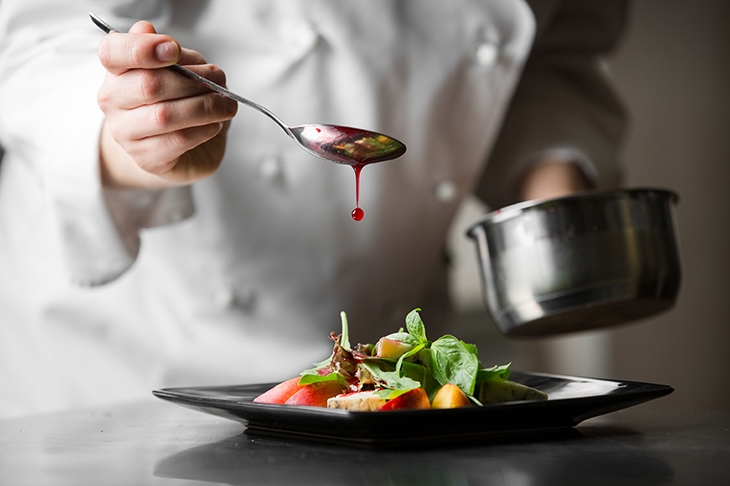Hardly a week goes by without a cook — sorry, chef — going bananas about the desecration of his hallowed ‘art’ by food reviewers, whose status is now so elevated that there is even a prize for budding initiates in the half-baked genre. Ancient comedians and satirists endlessly mocked cooks’ sense of their own magnificence.
Cooks in Greek comedy always regarded themselves as supreme experts. A comic cook explained to the man who had hired him: ‘The complete cook is made on a wholly different level. He is an artist, a geometer and a doctor. This enables him to discover a fish’s true potential.’ Another cook instructed his pupils in astrology, architecture, natural science and strategy, while another claimed that he was not one who merely ‘throws fish into a casserole. Oh no, there is true philosophical wisdom in my business’.
Then there was the cook who claimed his art was responsible for civilisation itself. First, there was cannibalism and no end of trouble, and then a cook made the first sacrifice to the gods — the foundation of the good, secure life — and tasted animal flesh. It was delicious, and even better with salt. Things improved with spices, and then someone invented sausages, fish dishes, vegetables; crowds began to gather, and cities were founded — all because of cookery!
Romans joined in the mockery, especially of cooks whose ‘art’ consisted of cooking food so as not to taste of, or look like, itself (any fool could do that). In his famous Satyricon, Petronius (c. ad 65) described a ghastly feast put on by one Trimalchio, a multi-millionaire ex-slave. He was extremely proud of his cook for exactly that reason: ‘There can’t be a more valuable man anywhere. If you ask him, he’ll make fish out of tripe, a pigeon out of bacon, a turtle out of ham, a chicken out of a pork-knuckle.’ The satirist Martial (c. ad 90) mocked one Caecilius who produced a complete meal of cakes, lentils, beans, mushrooms, sausages, tuna fish, sprats and sweetmeats, all made out of pumpkin.
Time for a prize for the funniest food reviewers?






Comments